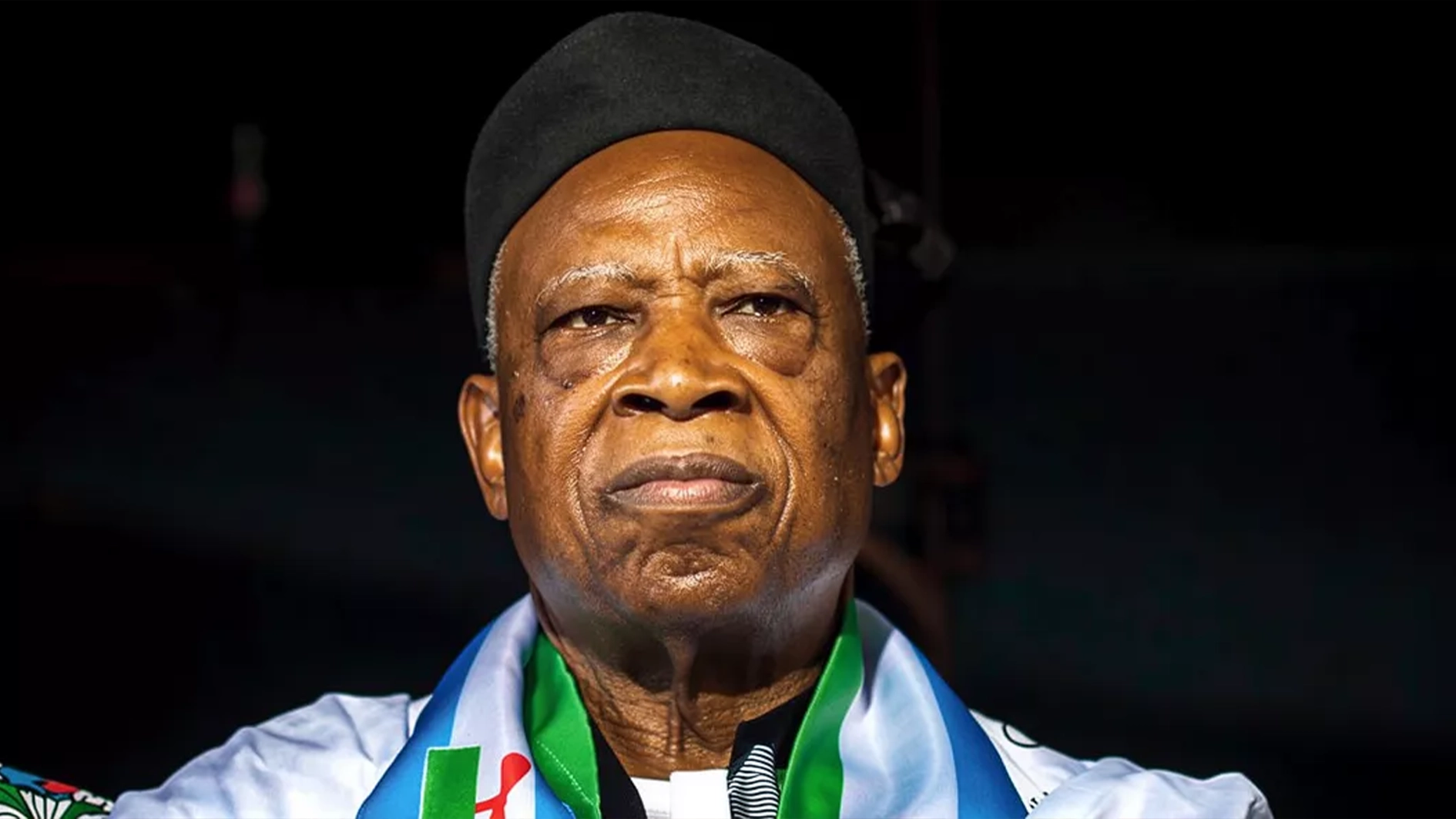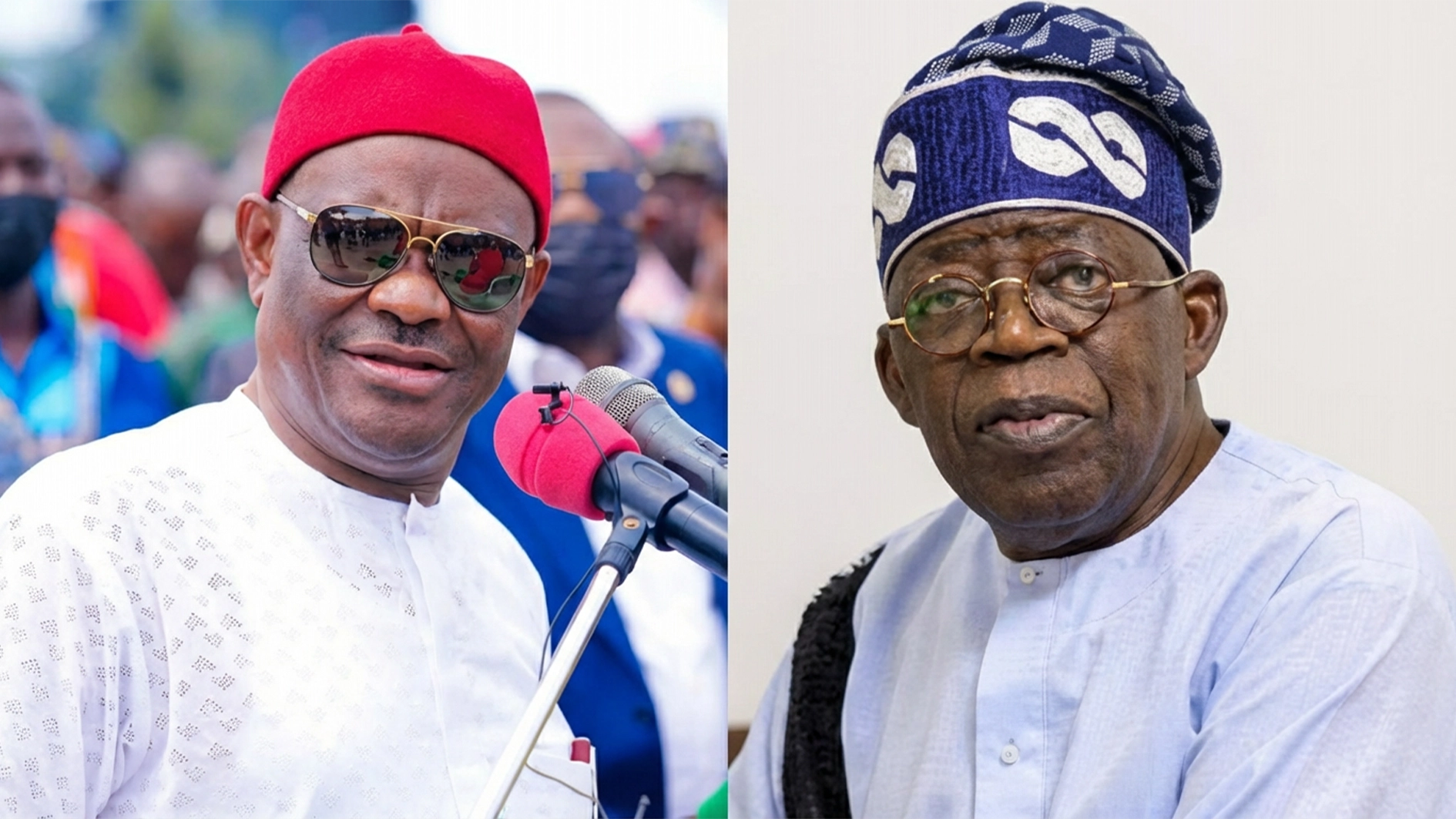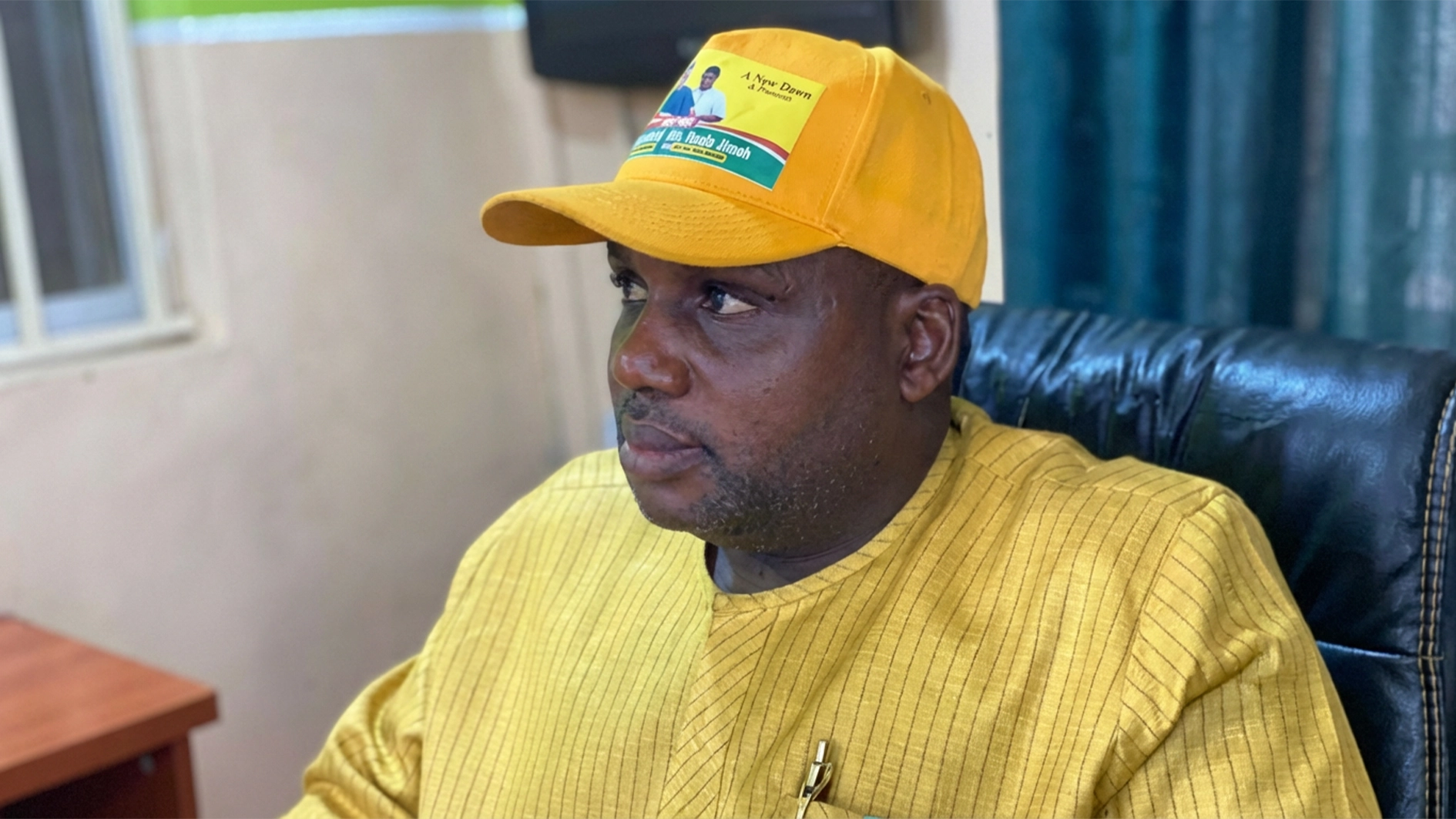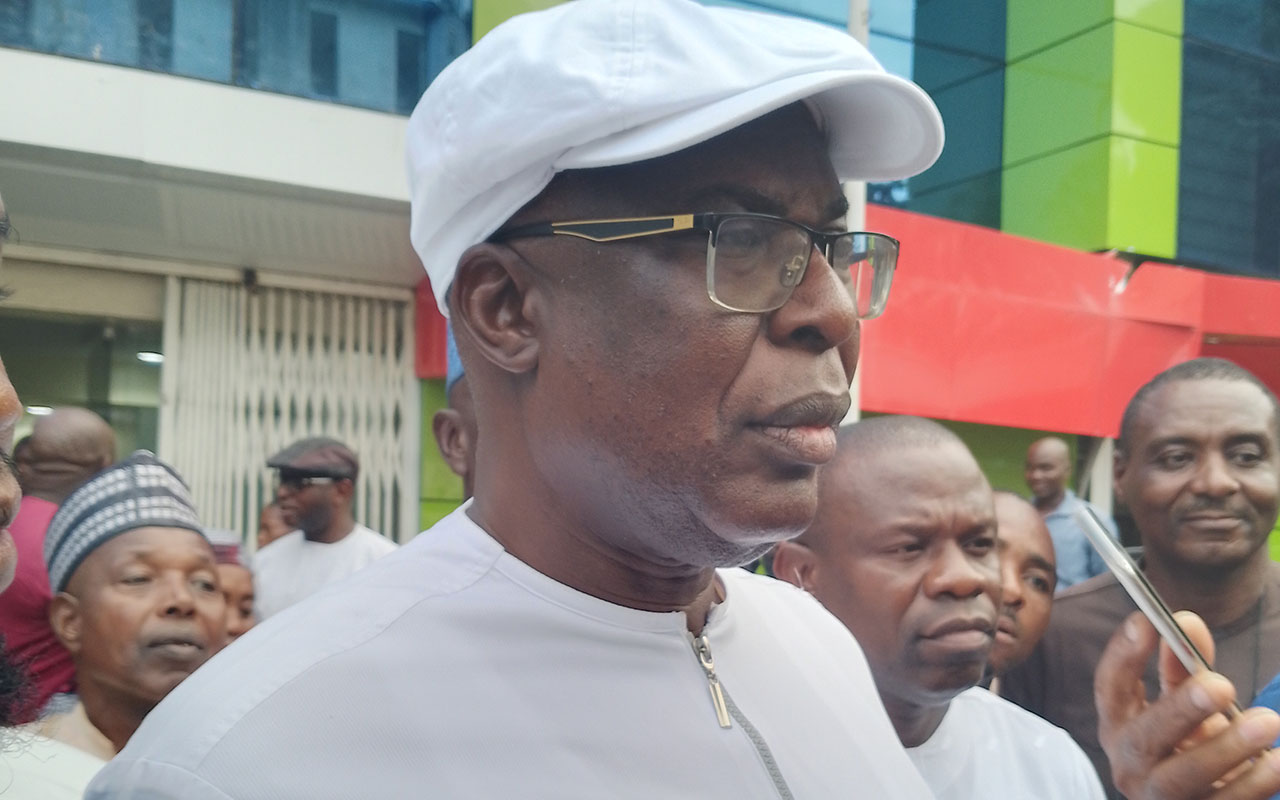
As Peoples Democratic Party (PDP) seeks prolonged hold on to power in Bayelsa State, All Progressives Congress (APC) is set to challenge the ruling party hegemony since 1999 in a contest that will be determined largely by money and voters’ intimidation,GODWIN IJEDIOGOR and JULIUS OSAHON report.
This Saturday’s governorship election in Bayelsa State has narrowed down to a battle of wits between the Peoples Democratic Party’s (PDP) Governor Douye Diri and All Progressives Congress (APC) candidate, Timipre Sylva. Labour Party’s (LP) Udengs Eradiri appears to be trailing in a distant third position, with other candidates and political parties just making up the pack.
At the beginning up to the time of judicial interpretations, political watchers predicted that Diri was way ahead, but Sylva appears to have closed the gap following his clearance to run by the Court of Appeal, which overturned the Federal High Court ruling that encumbered his candidature.
And as the two major parties gained ground, support for LP waned, narrowing the race to a two-way contest between the ruling PDP and APC. Unless the voters are free to vote their conscience without intimidation, vote-buying or threat of violence from the two key major parties, the Bayelsa governorship election might be recorded as the worst in the state’s recent history.
Already, there are allegations and counter-allegations by both parties of stock-pilling of arms and ammunition and bringing in thugs from neighbouring states ahead of the poll, just as large amounts of cash was being circulated among politicians as part of moves to sway voters to their favour.
As a result, most banks in the state capital, Yenagoa, had run out of cash to dispense to their customers since the beginning of this week, especially those withdrawing between N200, 000 and N500, 000.
None of the major players, Diri, and immediate past minister of State, Petroleum Resources, Sylva, is leaving anything to chance; hence doing everything possible to win the election, raising palpable tension among residents.
Though the last general election was not favourable for the APC in the state, going by the results and eventual outcome, this election will also not be a walk in the park for the PDP, which has held sway since 1999. While the PDP won in most of the seats contested in the last general election, APC candidates lost all the National Assembly seats, and could only garner five seats in the 24-member state House of Assembly with the PDP winning 17 seats, no thanks to the internal wrangling within the APC, which is still lingering.
Aside from the mouthed federal might or intervention, which President Bola Tinubu has dispelled, the emergence of Sylva, with his pedigree and deep pocket, has changed the political equation and could change the tide.
No political party apart from the PDP had occupied the Government House since 1999, the closest being the last governorship election in 2019, when the APC candidate, David Lyon, was declared winner by the Independent National Electoral Commission (INEC) and was rehearsing and set to be sworn-in, but the last minute Supreme Court judgement nailed that ambition.
Sylva governed the state as a member of the PDP before defecting to APC upon its formation ahead of the 2015 general elections.While Diri, a former member of the House of Representatives and Senate, is currently serving his first term, Sylva, who was governor between 2008 and 2012, is seeking a return to the Creek Haven seat of power.
And while Diri is heading to the war front with a more formidable and united party, as well as a remarkable scorecard of achievements, Sylva and APC on the other hand, are still grappling with many of the squabbles that have continued to linger in their fold over the years.
Indeed, it has been a bumpy ride for Sylva right from his indication to contest at a time many had expected him to back his political godson, Lyon, through the distraction from the court judgment. But he has remained resolute.
The umbrella has brought together all shades of opinions, including former governor and even former President Goodluck Jonathan, as could be seen during the grand finale of its campaigns in Yenagoa on Tuesday, November 7.
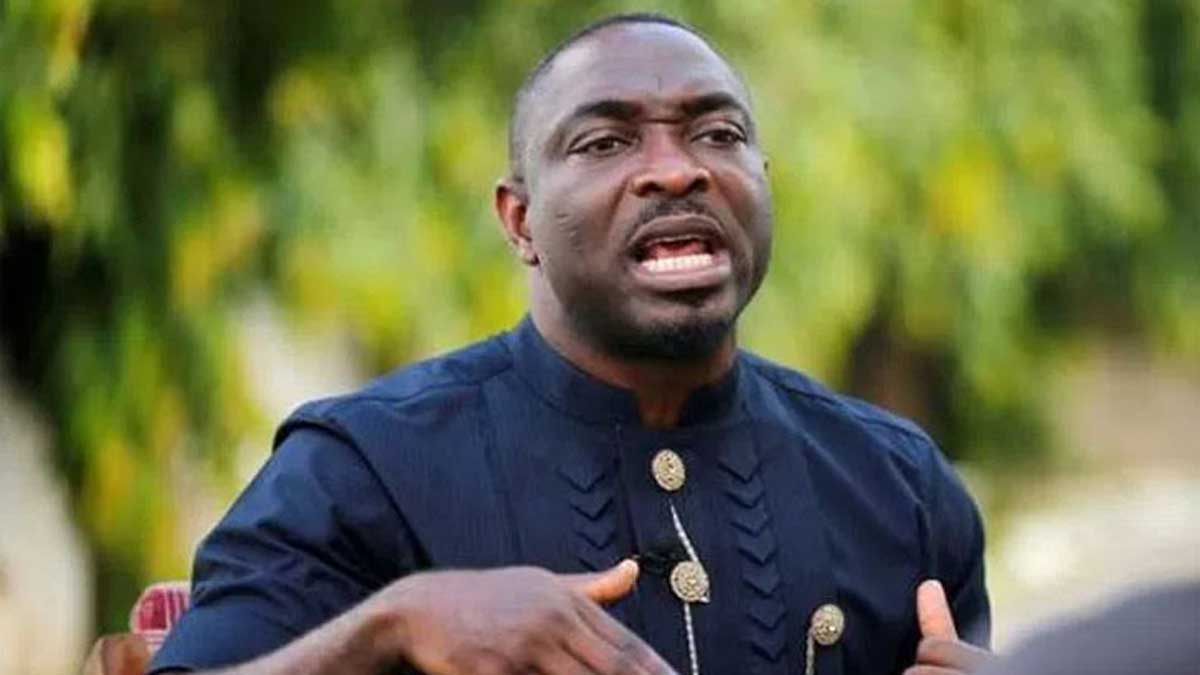
But the same cannot be said of the APC, as not all stakeholders, including Lyon, chieftains and federal government appointees, have identified with Sylva’s campaigns, although efforts were on to whip all into line and this would be put to test soon. Political observers wonder why true reconciliation, which the party urgently needs to win the election, has been so difficult and elusive.
Bayelsa, one of the states with the largest oil and natural gas deposits in Nigeria, and with fat allocation every month from the Federation Account, has a total land area of 10,773 square kilometres, comprising eight local councils – Ekeremor, Kolokuma/Opokuma, Yenagoa, Nembe, Ogbia, Sagbama, Brass and Southern Ijaw.
Often described as the cradle of Ijaw culture and tradition, because of its rich culture and tradition that dates back so many centuries, also has its own share of ethnic bias, regarded as “core Ijaw and non-core Ijaw,” a slang used by politicians to sway votes in their favour.
The “core Ijaw” factor is still strong in the state, which the incumbent surely has a strong claim to, though elections, just like in most of Southern Nigeria, are determined heavily by money and power incumbency.
According to INEC in the last registration exercise, Yenagoa, which hosts the state capital, had the highest voting strength with 218,294, while Southern Ijaw, one of the largest areas in the state, ranked second with 184,401 registered voters.
Sagbama, the home local government area of the immediate past governor of the state, now a senator, Seriake Dickson, ranked third with 138,832 voters, while Ekeremor, another area with a high population, is fourth with 137,225 registered voters.
Ogbia, the home local government of former President Goodluck Jonathan, has 119,57, while Nembe and Brass, considered as the strong base of Sylva and his APC, had 99,035 and 94,040 voters, respectively, just as Kolokuma/Opokuma Council, where Diri hails from, had a voting strength of 65,364.
With over 33, 000 voters yet to collect their PVCs, which are still at the INEC offices across the councils, statistics showed that the state has a total of 1,056,862 registered voters from the last registration exercise carried out by INEC.
Though many believe the voting strength of the eight councils and the number of voters that will turn out to vote for candidates of their choice would be a major determinant of the chances of the parties to win on Saturday, past realities indicate that the ability to out-rig opponent through intimidation, outright violence and deep pocket of a candidate could actually sway votes.
In the last election, PDP and LP lost to APC in Ogbia, Jonathan’s home base, which had been PDP’s fortress since 1999 until the 2015 governorship election, when the electorate voted overwhelmingly for the APC. Even though the former President has openly identified with the party that made him who and what he is today, the new trend could continue.
This is because the current Managing Director of the Niger Delta Development Commission (NDDC), Dr. Samuel Ogbuku, who is from the area, is like a hero in most communities, Jonathan’s influence notwithstanding, coupled with Ogbia people’s disenchantment with Jonathan, whom they accused of not doing enough for the communities as Nigeria’s President, except for his immediate family and Otueke.
In Brass and Nembe, which are part of the three councils that make up Bayelsa East senatorial district, despite the fact that PDP won the last presidential election there, the APC still has considerable influence, as its candidate is both paternally and maternally from the two councils.
In Bayelsa West, comprising Sagbama and Ekeremor, the influence, power and political machinery and sagacity of Dickson and his former Works commissioner and incumbent Deputy Governor, Lawrence Ewrujakpor, is likely to sway votes for Diri.
Even though the incumbent Minister of State for Petroleum, and former senator, Heineken Lokpogri, is also from Ekeremor, the seeming cold war between him and the APC candidate might not enable the party to reap votes from there. Many believed Sylva scuttled Lokpogri’s ambition at the APC governorship primary that eventually produced Lyon, and allegedly tried to frustrate his ministerial appointment.
The Bayelsa Central senatorial district, comprising Yenagoa, Southern Ijaw and Ekeremor Councils, would be fiercely contested by the three front-line candidates. With the largest voting population, enlightened groups, mixed tribes and culture, the election would be too close to call there. First, the LP candidate is popular here, being from Yenagoa, whose sub-tribe (Epia/Atissa) has not produced a governor since the creation of the state. He is also a vibrant youth leader and former IYC president.
Diri, on the other hand, has been criticised for not doing enough in the state capital and for other policies that put more pain on residents and left many impoverished, stranded and beggarly.
For example, his continued ban on Keke (commercial motorcyclist) operations in the state capital since last year, following a violent protest, has seen many leaving the state in droves and commuters stranded after 7 p.m., despite pleas to lift the ban or make it effective from 10 p.m. or 12 midnight.
Sylva, on the other hand, might also get some sympathy votes from some Yenagoa residents, especially those who witnessed his first four years in office, buoyed by his running mate, Joshua MacIver, who is from Southern Ijaw, where most Bayelsa elections are determined.
Although INEC might not have powers to curb the possible low turnout of voters, threat of violence, power and money play, its transparency and that of the major players would be crucial factors in determining who wins on Saturday.



